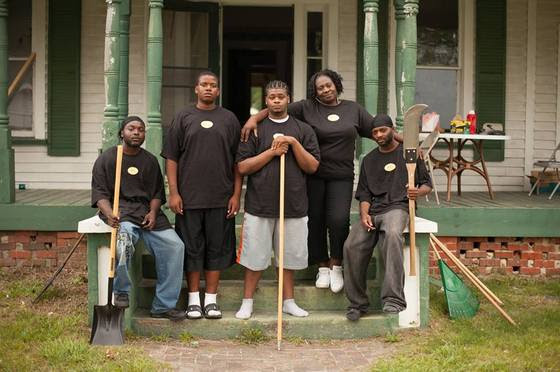 Shooting a documentary cinema verite style sometimes means that it doesn’t end up the way you planned.
Shooting a documentary cinema verite style sometimes means that it doesn’t end up the way you planned.
Filmmaker Margaret Byrne went down to rural Bertie County in northeast North Carolina to profile the work of Vivian Saunders, a community worker who took it upon herself to help at risk young men there with an alternative school, succeeding in part because she cared so much in the students, treated them like family and had an expectation of achievement.
But when the school superintendent closed down the Hive, as the school was called, to save money, Byrne continued to follow the story — in particular those of three young men, each struggling in their own way. In the public school, now much older than the rest of the population, they floundered. The teachers there didn’t have time for nurturing.
As Byrne demonstrates in her eye-opening film “Raising Bertie,” premiering tonight on PBS’ documentary showcase “POV” (10 p.m., PBS, check local listings) the seed of self-determination helped each of the three eventually find a way to a self-sufficient life.
And what began as a short film on a single alternative school program turned into a six year project marking the change in each young man: Reginald “Junior” Askew, first seen riding his bicycle down an empty county road, with dreams of a car; Davonte “Dada” Harrell, who has a gentle touch with a nephew and wants nothing more than to be a barber; and David “Bud” Perry, who has to deal with anger issues as he tries to graduate and help support a daughter.
Byrne says she spent another two years editing the film, to ensure the good as well as the bad provided a balanced picture of the sometimes bleak life in a rural county where poverty can be high.
Talk about the forgotten man; portraits of these young men, struggling in earnest to do better than the single-mother homes in which they were raised, are rare anywhere on TV.
Things don’t look optimistic for their entrance into the wider world, if only because somebody felt a lot of their dialogue in the film needed to be subtitled in order to be understood.
Still, by keeping talking heads — and most authority figures outside of moms, Saunders and other teachers — out of the film and letting the young men speak and dream of their future show glimmers of hope and an indomitable spirit, even in the bleakest prospects.
Junior, Bud and Dada are not the kind of people you’ll forget very soon, and that’s just the way it should be if viewers keep mindful of the James Baldwin quote that starts the film: “I am what time, circumstance, history have made of me, certainly, but I am also so much more than that. So are we all.”
This review also appears at TV Worth Watching, a website worth reading, where I am now a contributor.